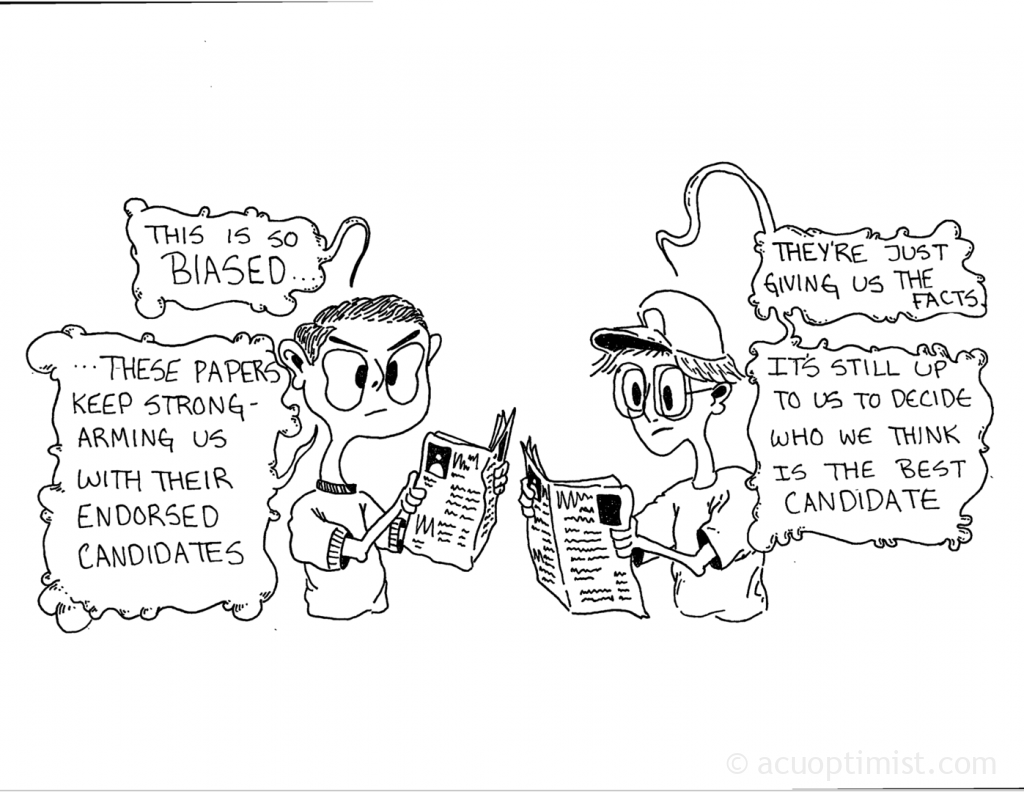For decades, newspapers have endorsed candidates running for political positions in an attempt to start the conversation about the race.
Most backlash comes from readers who argue it’s an abuse of power for newspapers to endorse, but endorsements are a necessary part of an editorial staff’s duties.
In the wake of Student Government Association elections next week, and local races drawing in more candidates and attention, it is important to understand why newspapers endorse candidates.
In 1956, the editorial board endorsed certain qualities of a leader, including: ability to organize, ability to think, originality and a good personality. All of these attributes should be indicated by his or her overall campaign.
Though the Optimist runs quite differently than most major newspapers – our editorial board is comprised of staff members from each section, whereas most newspapers separate their staff members from the editorial board – we still practice endorsements, and have since 1984.
In ’84, the Optimist wrote an editorial explaining the value of endorsements, making clear that who we choose to endorse has nothing to do with popularity or personal attention, but because of the responsibility journalists have to share information and make a recommendation to the public based on who we believe is most qualified for community service.
“The role of press endorsements is a time-honored method of sparking lively debate on issues, which creates an interest in better leadership,” the ’84 editorial board said.
Endorsements could improve voter turnout as we introduce information about candidates, including platforms and qualifications, to our audience.
Jeff Cohen, editor of the Houston Chronicle, also said endorsements provoke higher thought and increase motivation to partake in the democracy process.
“We believe it is paramount for the community and electorate to be engaged and strongly advocate for participation,” Cohen said.
When the Optimist endorsed Beto O’Rourke for Senate, we had over 6,000 engagements, 174 reactions, over 200 comments and 42 shares on Facebook alone. It was our most interacted with piece last fall.
Though some comments were derogatory toward the university and editorial board, most took the opportunity to post opposing or supporting opinions.
We started the conversation and became a medium for our audience to engage in agreements and disagreements (both kind and rude). We also gave our audience the chance to vote with us on Twitter, Facebook and Instagram (Beto won on Twitter and Instagram, but Cruz won on Facebook), though the results did not influence our endorsement nor were they used for any research.
Editor of the Denver Post, LeeAnn Colacioppo, backed the history of editorials – that if the press goes through the trouble of covering public policy (which obviously, is a lot more work than reading it), it is the right of that respective paper to express an opinion.
“That’s how an editorial page got started to begin with, in trying to make arguments that would be good for society. The reason we do endorsements is because we’re trying to help people understand complicated political questions. Whether that’s a candidate, as in a presidential endorsement, or an issue, like a ballot issue, where the devil is in the details.”
This election season, we will endorse the candidates we see best-fit for the position, and help inform our readers of why these said people deserve the office they are running for.

